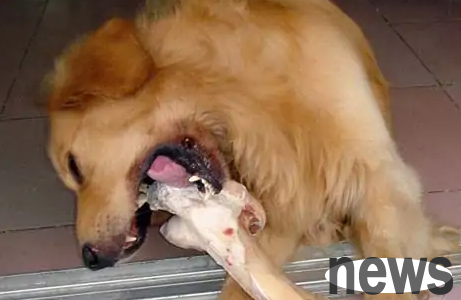01. Is the higher the nutritional indicators of pet food, the better the quality?
The various nutritional needs of pets have a certain range, and the higher the nutritional indicators of pet food, the better. For example, protein, the minimum concentration of protein in pet foods formulated by the global pet nutrition agency AAFCO is: 22.5% for puppies and 18% for adults. For some young and normal dogs, excessive protein may not have much impact, but it will be harmful to sick dogs because it increases the burden on their liver and is also harmful to elderly dogs and will destroy the circulation system of elderly dogs. If feeding dogs with liver and kidney damage to their liver and kidneys, the excess nitrogen will be deposited in body fluids and tissues, causing burden on the liver and kidneys. Therefore, it is not necessary to consume food with higher nutritional indicators, the better it is for pets.

02. Can you feed your pets with leftovers?
Many leftovers contain too high sugar, salt and fat. Long-term feeding of pets will cause pet obesity, which will increase the incidence of nutritional metabolic diseases such as heart disease, dystrophy, arthritis, etc., which is not conducive to pet health. In addition, leftovers are generally soft and sticky. If pets eat these foods for a long time, it is very easy for tartar to accumulate in the mouth, which in turn causes tartar and periodontitis, causing pets to have bad breath.
A large number of pet studies and pet clinical reports show that pets fed with leftovers for a long time generally suffer from serious tartar problems around the age of 5. Periodontitis caused by tartar problems requires tooth extraction in most cases, which seriously affects the quality of life of pets. Pets who have long-term consumption of professional formula pet foods need to constantly bite the food while eating every day, and continue to cause tooth friction and gum massage. The teeth are generally very healthy and have almost no oral problems before the age of 8.
03. Do pet food need to be soaked in hot water?
The teeth of dogs and cats are strong enough to easily bite food particles. The hardness of dogs and cat food can ensure that the teeth of dogs are cleaned and rubbed when they eat. In addition, the biggest disadvantage of soaking cat food and dog food in hot water is that vitamins are destroyed in large quantities, which will lead to insufficient vitamin intake in pets. Therefore, for healthy dogs and cats, it is not recommended to soak food in hot water and feed it.
04. What should I pay attention to when feeding young pets?
Dogs are prone to overeating, causing gastric dilation and endangering their health. Therefore, do not feed too much food to the puppies at one time. It is more reasonable to divide it into 3 feeds every day. In addition, young dogs and cats are at the peak of growth and development, and the demand for nutrition is strong. They need to provide comprehensive and balanced nutrition. Eating professional formula dog food and cat food can ensure that they achieve ideal physical development.
05. How should the diet of elderly pets be adjusted?
Generally speaking, the basal metabolic rate of elderly pets is reduced, so the energy density of food should be appropriately reduced to reduce the burden on liver and kidneys, while preventing obesity and reducing the incidence of pet geriatric diseases. The teeth of elderly pets have decreased, so the hardness of pet food should be appropriately reduced. However, it is not recommended to elderly pets to eat too soft foods (such as meals), because too soft diet will increase tartar and are not conducive to the oral and heart health of elderly pets.

06. What other issues should be paid attention to when feeding pets?
1. Milk cannot replace water. For dogs and cats, milk is a useful snack, but they cannot tolerate a lot of milk. Milk contains lactose, which requires lactase in the gastrointestinal tract to digest it. If the lactase content in the gastrointestinal tract is insufficient or the lactose content is too large, it will cause diarrhea in some pets.
2. Do not add raw eggs to pet food. The egg whites of raw eggs contain antibiotic protein, which prevents the absorption of vitamin H. Vitamin H deficiency can cause dermatitis, hair loss and dysplasia.
3. Avoid feeding certain raw fish. Some fish can cause pet vitamin B1 deficiency, which can cause anorexia, abnormal behavior, convulsions, thinness and even death.
4. Although dogs and cats like to eat meat, meat is not a balanced food. Raw meat may contain parasites, cooked meat has a high fat content and an unbalanced nutritional content.